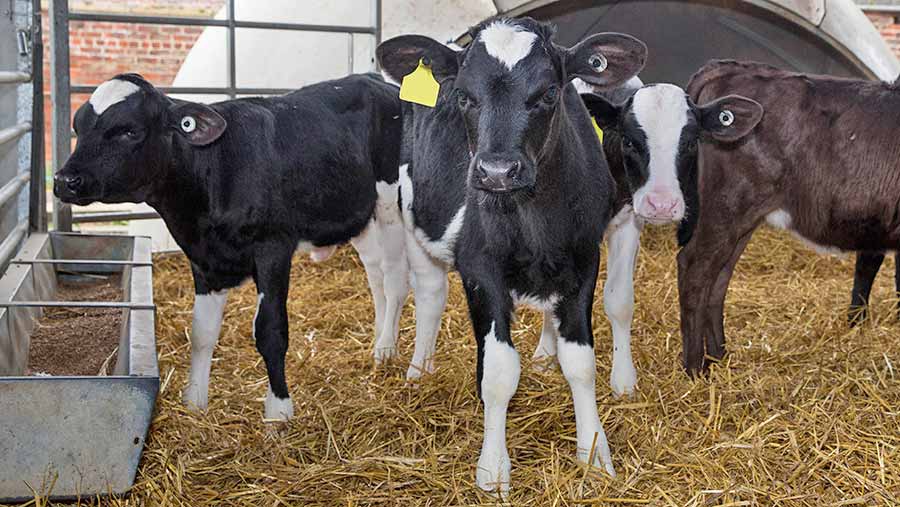New bolus sensor to detect disease early in youngstock
 © Tim Scrivener
© Tim Scrivener A new type of bolus sensor that could be used in calves as young as 14 weeks is being developed by experts at the University of Nottingham.
Bolus sensors, which sit in an animal’s gut and monitor body temperature or pH, are in widespread use in cattle – but are currently only available for adult cows.
Every year, of the 2.5 million calves that are born, 8% of them are born dead or die within 24 hours and a further 15% die in rearing from diarrhoea and pneumonia.
The cost of a pneumonia outbreak is estimated at £81 a calf and £57 a calf for a diarrhoea outbreak.
See also: How bolus technology is helping to manage calving
In a bid to alert farmers to disease in youngstock early and cut antibiotic use, researchers are developing Y-Ware.
The £1.13m project is a partnership with farming digitalisation specialists PrognostiX and BT, and is supported by a grant from government-funded Innovate UK.
How does the sensor work?
- A dashboard will use machine learning techniques to give farmers an early warning system for health.
- This warning system will use information collated from the bolus sensor as well as comprehensive information collected from a range of additional sources including building temperature, humidity, farm and vet records and animal weights via a fully automated weighing platform.
- All the information will be collected via a communications hub and will be used to produce baseline data and a specific signature for the animal.
- A web dashboard will offer farmers access to customisable reports that will provide essential information on individual animals as well as groups of animals
- Unusual changes to this signature, for example, an unexpected rise in body temperature, could then allow farmers to spot the signs of disease, treat early and quarantine the animal to prevent wider outbreaks among the herd.
Developers say the new technology will allow farmers to more effectively target use of antibiotics to treat disease and this will tackle overuse of the drugs.
Dr Jasmeet Kaler, Nottingham university associate professor of epidemiology and farm animal health, is the academic lead on the project.
She is also head of ruminant population research in the university’s School of Veterinary Medicine and Science.
She says: “Improving youngstock health on cattle farms is a key priority for cattle industry and also been identified by industry task force RUMA (responsible use of medicine in agriculture alliance) as one of key targets released last week for antibiotic reduction on cattle farms especially beef. Use of innovative and precision health technologies offer a great solution in this direction.”
The technology should be rolled out in 2019 following trial testing next year.
